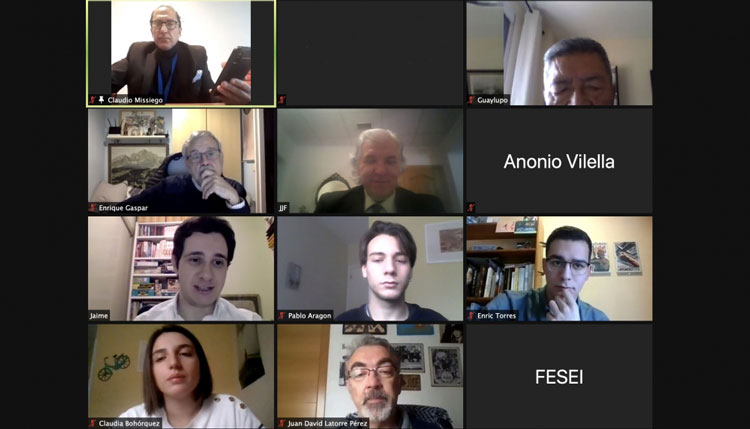The Diplomat
The Azerbaijani Embassy commemorated yesterday with a webinar the terrible events of the Black January that happened on the 20th of that month 1990 and left behind the death of about 300 people.
The third secretary of the Azerbaijani Embassy, Magsad Huseynov, led the event, which was presented by the specialist on the region, professor and writer Jesús Gil Fuensanta. The professor highlighted how Azerbaijan’s achievements and developments in recent times have brought the country’s catastrophes of this kind out of oblivion and nowadays “Azerbaijan is much more taken into account”.
When asked whether the Azerbaijani people were afraid of interference by the great powers surrounding their territory, the speaker pointed out that “Azerbaijan has signed many collaboration and political agreements with international organisations that guarantee its importance on a world level, which makes it a very strong state with its own entity”.
The Nagorno-Karabakh dispute was one of the major triggers of “Black January”, as in 1988 the Armenians increased their activities to separate the Nagorno-Karabakh area from Azerbaijan, and in December 1989 the Supreme Council of the Armenian Soviet Republic decided to annex Nagorno-Karabakh to Armenia. Azerbaijan reacted to the decision with massive demonstrations in Baku. Azerbaijanis flocked to Azadliq Square to protest against the Soviet government and the growing land demands of the Armenians.
The continuous demonstrations disturbed the Soviet management and the decision was taken to deploy the army in Baku. The people blocked the entrance roads of the city and closed the front of the military units in Baku. First, on 19 January 1990, the Azerbaijani TV energy supplier was bombed by Soviet intelligence. In the afternoon, 26,000 Soviet Army soldiers entered Baku in armoured vehicles from five directions. The Soviet Army entered the city and shot unarmed civilians, who tried to stop them. Tanks and heavy armoured vehicles passed over the people, while ambulances and passenger buses were opened fire. That night, 130 civilians lost their lives in Baku. The Soviet army continued the massacre in other cities like Neftchala and Lankaran in the south of the country, and a total of 147 civilians were killed on January 20. Some 744 people were injured in the incidents, while some 400 were arrested by the Soviet Army.






